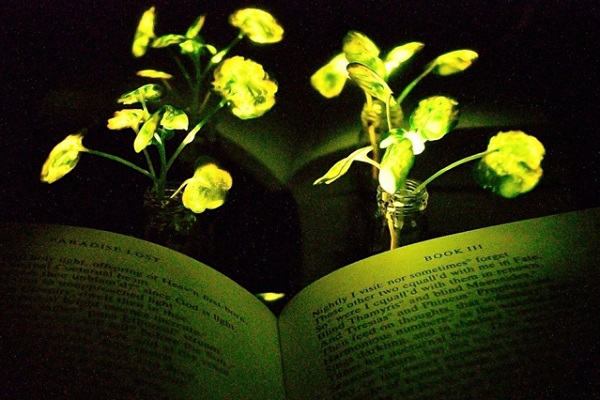In recent years, the "plant factory" concept has been getting popular. Supporting Horticultural lighting has also been gaining attention. Chinese and international LED enterprises are both eager to participate in this lighting segment.
According to LEDinside, the outlook of horticultural lighting LED is quite optimistic with rapidly growing market scale. In 2017, horticultural lighting system's market scale reached about USD 690 million. In particular, that of LED grow lights came to USD 193 million. In 2020, the market scale of horticultural lighting system is projected to rise to around USD 1.424 billion, and USD 356 million out of it will be contributed by LED grow lights.
LEDinside collected the top 10 news of horticultural lighting in 2017.
01/ GO Scale Capital, AeroFarms Established Plant Factories in China
In January 2017, GO Scale Capital entered the modern agriculture industry. It collaborated with plant factory brand AeroFarms to cultivate the market in China. GO Scale Capital introduced the most advanced plant factory technology to China, Hong Kong, Macau, and Taiwan. The 10 premium-sized vertical farms (in the phase 1) are predicted to be built in Beijing, Guangzhou, Shenzhen, and Hangzhou, in order to meet the demand for high-quality and safe green vegetables in the high-end consumers' market in the future.
02/ San’an Opto and CAS Started Operation of Their Second Plant Factory Building
San'an Opto announced that it worked with Institute of Botany, the Chinese Academy of Sciences (IB-CAS) to build "the second" building of San'an Sino-Science plant factory. This facility began to operate at the end of March 2017. Extra 50 thousand square meters planting area will be added. "The first" building started construction in February 2016, and was finished and began to operate in August 2016.
03/ Osram Acquired Shares of Agrilution to Expand Presence in Horticultural Lighting
On May 12, Osram announced that its venture capital division, Fluxunit, purchased some stocks from Agrilution, a startup in Munich.
This startup developed smart indoor plantCube. It can be used as a family garden growing edible vegetables and herbs. For users who don't have any gardening knowledge, they can still use optimized LED technology and other innovative technologies to significantly raise production.
04/ JD Group, Mitsubishi Chemical Invested in New Plant Factory in Beijing
On June 20 2017, JD Group and Japan's Mitsubishi Chemical Holdings Group worked together on building a plant factory. JD was to construct a plant factory in the Tongzhou District of Beijing City, covering about 10 thousand square meters. This factory will begin to operate before Spring 2018. The total investment amount will reach about JPY 800 million (around RMB 49.16 million). Mitsubishi Chemical will provide hydroponics systems. Meanwhile, Mitsubishi will offer technical instructions of seed selecting, sowing seed, harvesting, and packaging. It will also provide guidance of management for hygiene and vegetable production records.
05/ Philips Lighting Developed New Horticultural Lighting Solution
Philips Lighting announced that its GrowWise City Farming Research Center produced arugula, of which the vitamin C is 7 times higher than the average amount the U.S. Department of Agriculture claimed in an arugula (15 mg / 100 g). This vitamin C-rich arugula was grown in a plant factory that uses Philips Lighting technology (not natural light). This factory was located in a research lab in Netherlands where Wageningen University and Maastricht University collaborated to maintain.
06/ Japan Introduced to Plant Factories AI Technologies Able to Raise Plant Production
Japan's Ehime University cooperated with farms in various areas within the country to develop an artificial intelligence system that can raise tomato plant productivity. This system targets indoor horticultural farms, aiming to raise the harvest by 10% and also reduce the working time by 10%. This system is predicted to be adopted in massive agricultural areas in 3-5 years.
07/ Plenty Received USD 200 Mil Investment Led by SoftBank Group
Vision Fund of Masayoshi Son (the founder of SoftBank Group) is the lead investor of Plenty's USD 200 million financing series. Plenty is a startup in Silicon Valley, and it claims to decode how to grow plants indoor with high efficiency.
Plenty's method is different than the majority of indoor farming companies who use shelves to grow their crops. Plenty grows crops vertically. Each plant grows along the side of a high tower. They also choose to adopt vertical light distribution for plants, instead of emitting lights in all directions from a point light.
08/ Customized Lumileds Horticultural Lighting for Greenhouse-Grown Plants
Lumileds added three new models to LUXEON SunPlus horticulture lighting LED series. LUXEON SunPlus series are the only LED products that are binned and tested based on photosynthetic photon flux density (PPFD) in the industry. Their color diversity allows users to adjust wavelength of the LED in a greenhouse or a vertical farm, in order to reach maximum crop production.
09/ LED Plant Factory in Taiwan Successfully Grew Edible Roses
Yu Tsong Ann is an Associate Professor from Department of Molecular Biotechnology in Dayeh University in Changhua County, Taiwan. He led students to successfully grow edible rose flowers in LED plant factories. In a controlled environment, the flowers' quality is stable and there is no need for pesticides, so that people can eat without worries, as Taiwanese media reported.
10/ MIT Engineers Created Plans Illuminating for Four Hours
In the future, roads might be lit up by shining trees, rather than road lights. Engineers from MIT invented plants that can emit lights. Researchers injected special nanoparticles into watercress. For around four hours, this plant continued emitting dim light. Researchers believed that further adjustments will allow this technology to provide enough luminance to light up a workplace or a street. The technology should be able to support low-intensity indoor lighting as well.





 CN
TW
EN
CN
TW
EN





